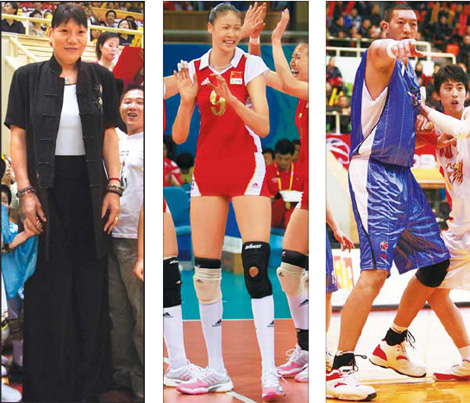Hot on the Web
Height does not translate to might in real world
By Tang Yue (China Daily)
Updated: 2010-02-10 07:57
 |
Large Medium Small |
|
|
Suffering with injury
Apart from inconvenience and confusion in daily life, height also has a higher price - injury.
That doesn't mean other athletes don't get injured but those of greater size appear more vulnerable due to the greater pressure on their legs and feet. Their hearts are also under more strain.
Zheng's career has cost her two pieces of meniscus, a crescent-shaped structure, on her right knee and has left her limping since 2001. She also suffers from chronic back pain which ended her WNBA career in 1998.
Spiker Zhao was dubbed the "glass beauty" by local media due to her vulnerable body. After several fractures, she had a steel pin inserted into her right leg and will have it for the rest of her life.
Yao is another prime example.
He has struggled with injuries since 2005. He was diagnosed with a sprained ankle after Game 3 against the Los Angeles Lakers in the Rockets' second-round playoff last year and is now recovering after surgery in July.
Public pressure
Apart from injuries, what also hurts is the general public's perception of ultra-tall people.
"Height always gets you more attention from the public and it becomes pressure and motivation as well. It's not all bad," Zheng said.
"But people tend to take your height as natural supremacy on the court. When you make it, they take it for granted. They easily neglect the effort behind the height. When you perform poorly, they say you're too slow or too unwieldy.
"The only way to let others know you are working hard is to work harder, to shoot more accurately than others do," she said.
Averaging 26.4 points, 13.1 rebounds on an astounding 83.5 percent from the field, Zheng was named the MVP of the 1994 Women's World Championships and led the team to the silver medal.
"I just hope fans can be more fair to tall players in the future," Zheng said. "No one gets success easily. Not even the tall."








